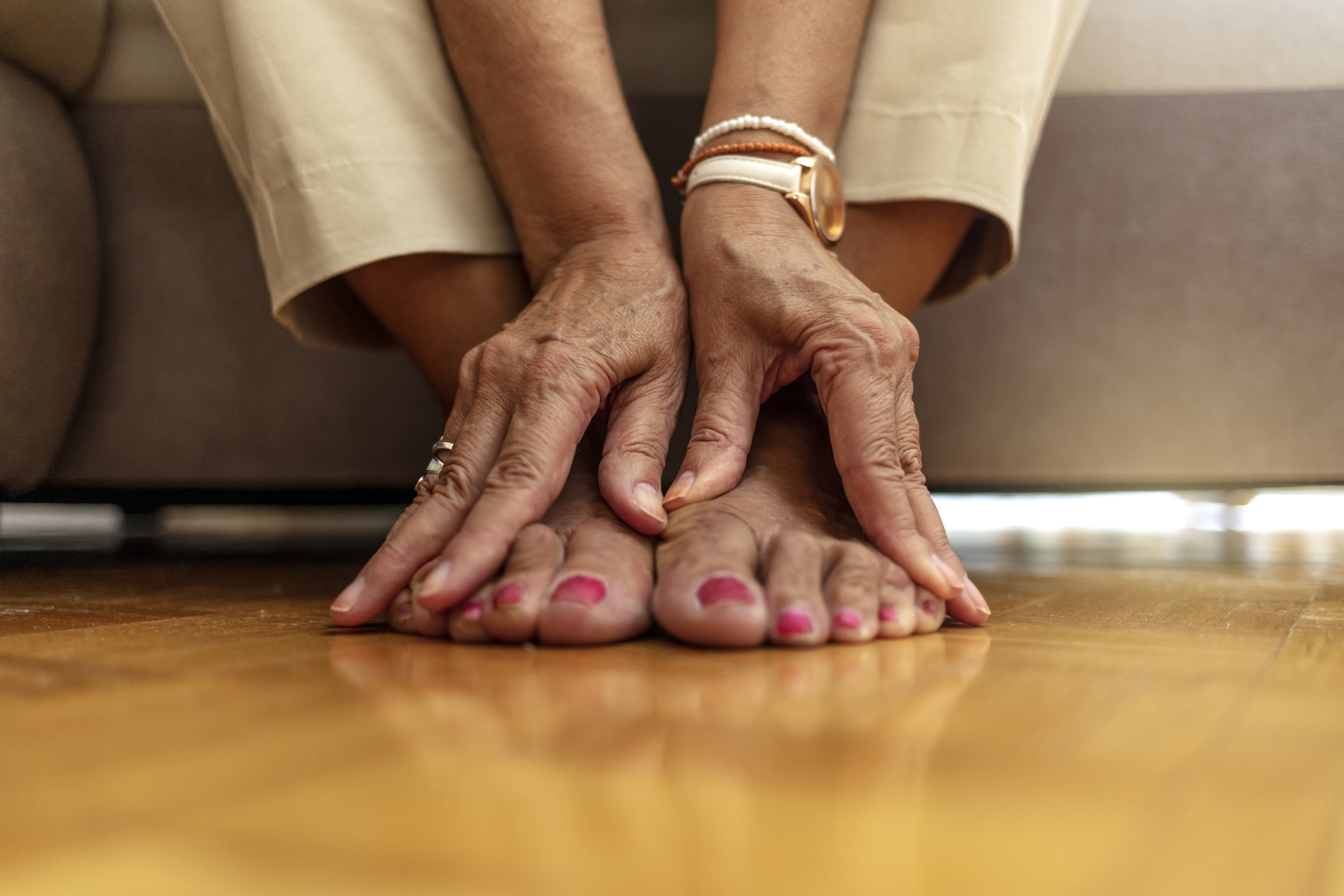
Find out how preventing common foot issues can lead to better senior foot care and overall health.
It’s difficult to put your best foot forward when soreness wracks every step. Foot issues are normal as we grow older, which is understandable; there are so many delicate parts that hold up the weight of our bodies. Furthermore, because they are so far from the heart, our feet may not be getting as much oxygen-rich blood as needed to remain healthy – especially if a health concern like diabetes limits blood flow to the feet.
However, many seniors prefer to simply grin (or grit their teeth) and bear it, as opposed to finding help for painful feet. This can lead to not merely growing discomfort, but limited mobility and balance problems. Difficulties with your feet can also be a warning sign for other health issues that need diagnosis and treatment.
Watch Out for These Common Senior Foot Care Issues
Foot pain might result from:
- Dried-out skin. Throughout the cold winter season, dry skin is prevalent. On the feet, it can cause cracks that aren’t only painful, but can lead to infection.
- Calluses and corns. These thick spots of dry skin on the feet commonly develop from the irritation from shoes that are too tight.
- Bunions. In contrast to calluses and corns, bunions are the product of changes to bone structure. They are often very painful, frequently developing on the exterior part of the big toe joint.
- Hammertoes. As opposed to all of the toes lying flat, hammertoes are misshapen and point upward. You may notice a corn along with the deformed toe.
- Arthritis. Arthritis can impact any of our joints, even the feet, creating both pain and mobility issues.
- Plantar fasciitis. Plantar fasciitis is a consequence of bony growths formed when a ligament on the heel becomes inflamed. Walking and even just standing can be hugely painful with this problem.
- Ingrown toenails. Toenails that grow at a different angle than normal can become ingrown in the skin of the toe, often requiring a surgical procedure to eliminate.
- Fungal infections. Wet feet make an excellent breeding ground for fungus, which can develop between the toes.
Dr. Said Atway, clinical professor of podiatry at The Ohio State University Wexner Medical Center, treats seniors suffering from these types of issues on both ends of the spectrum: highly active and developing problems from excessive use, as well as individuals with an inactive lifestyle suffering from limited blood flow to the feet and poor overall health. He stresses the importance of proper shoes for seniors, who should keep from going barefoot or wearing shoes with insufficient support, such as flip flops.
To find the best-fitting, most comfortable shoes, he suggests:
- Shoe shopping later in the day, as gravity causes the feet to expand a bit during the day
- Trying out shoes by walking in them for at least 20 minutes; giving them a test run on a carpeted area at home should prevent any wear on the bottoms of the shoes, so they can be returned if they do not fit right
- Seeking the advice of a podiatrist regarding the best type of shoe for an older adult’s particular concerns
Proper senior foot care is important for maintaining healthy feet. Keeping the feet clean, moisturized, and dry, and doing daily inspections to check for problems, is suggested for all older adults. An annual visit with the podiatrist can also help circumvent problems.
Hearts at Home In-Home Care, a trusted provider of elderly home care in Kansas City and the surrounding areas, is here to help older adults kick up their heels in lots of ways: ensuring good foot hygiene, providing transportation to look for shoes or to the podiatrist, taking walks together to enhance blood circulation, and more! Contact us at 913-440-4209 for a complimentary in-home consultation today.
